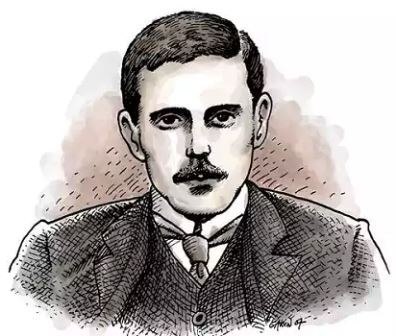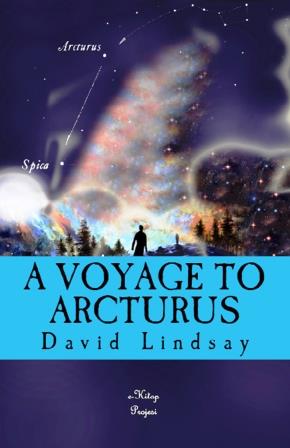More Search Results...

David Lindsay (1876 – 1945) was an English author now best remembered for the philosophical science fiction novel A Voyage to Arcturus (1920). Lindsay was born into a middle-class Scottish Calvinist family in London, and was brought up partly in Jedburgh, where he had family background. He was educated at Colfe’s School, Lewisham, and won a scholarship to university, but for financial reasons went into business, becoming an insurance clerk at Lloyd’s of London. He was successful, but his career was interrupted by service in the World War I, at the age of 40. He first joined the Grenadier Guards, then the Royal Army Pay Corps, where he was promoted to Corporal.
After the war Lindsay moved to Cornwall with his young wife to become a full-time writer. A Voyage to Arcturus was published in 1920, but it was not a success, selling fewer than six hundred copies. This work has links with Scottish fantasists (for example, George MacDonald, whose work Lindsay was familiar with), and it was in its turn a central influence on C. S. Lewis’s Out of the Silent Planet. Also, J. R. R. Tolkien said he read the book “with avidity”, and characterised it as a work of philosophy, religion, and morality.
Lindsay attempted to write a more commercial novel with his next work The Haunted Woman (1922), but this was barely more successful than the Voyage.[3] He continued to write novels, including the humorous potboiler The Adventures of Monsieur de Mailly, but after Devil’s Tor in 1932 he found it increasingly difficult to get his work issued, and spent much of his time on his last work The Witch which was not published in his lifetime.
He and his wife opened a boarding house in Brighton, but they did not prosper and their marriage underwent considerable strain. The house was damaged by the first bomb to fall on Brighton in the World War II and Lindsay, who was in his bath at the time, never recovered from the shock. His death from an infection resulting from an abscess in his tooth was unrelated to the bomb.
A Voyage to Arcturus
The two strangers remained standing by the door, which was closed quietly behind them. They seemed to be waiting for the mild sensation caused by their appearance to subside before advancing into the room. Maskull was a kind of giant, but of broader and more robust physique than most giants. He wore a full beard. His features were thick and heavy, coarsely modelled, like those of a wooden carving; but his eyes, small and black, sparkled with the fires of intelligence and audacity. His hair was short, black, and bristling.
More info →
































